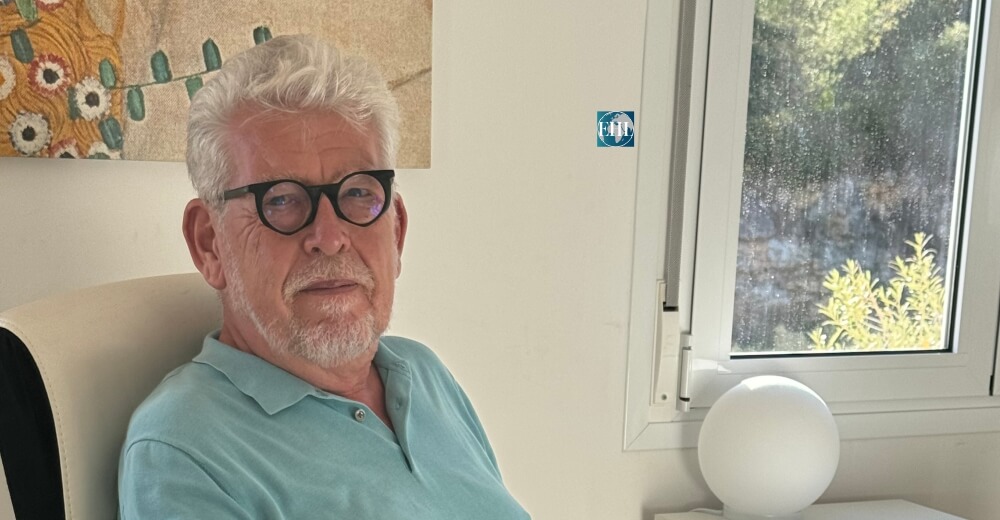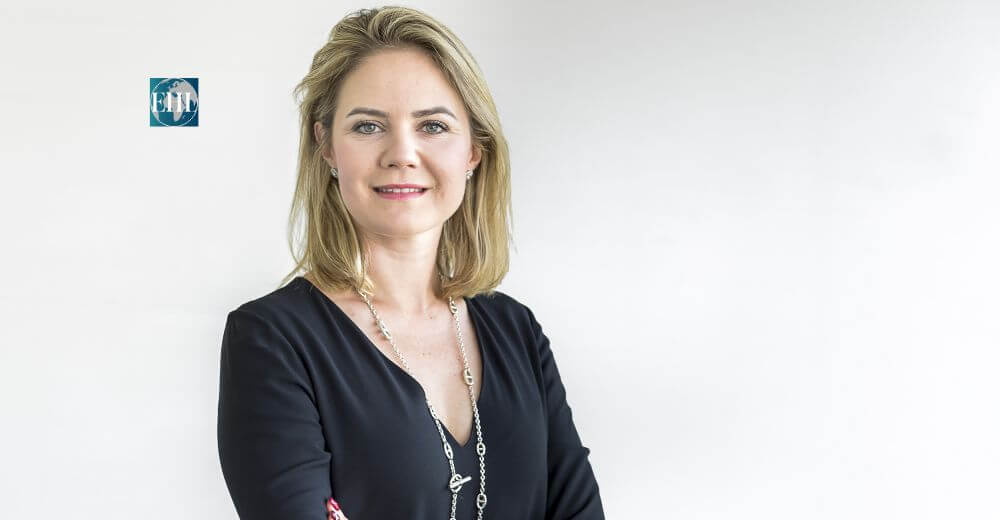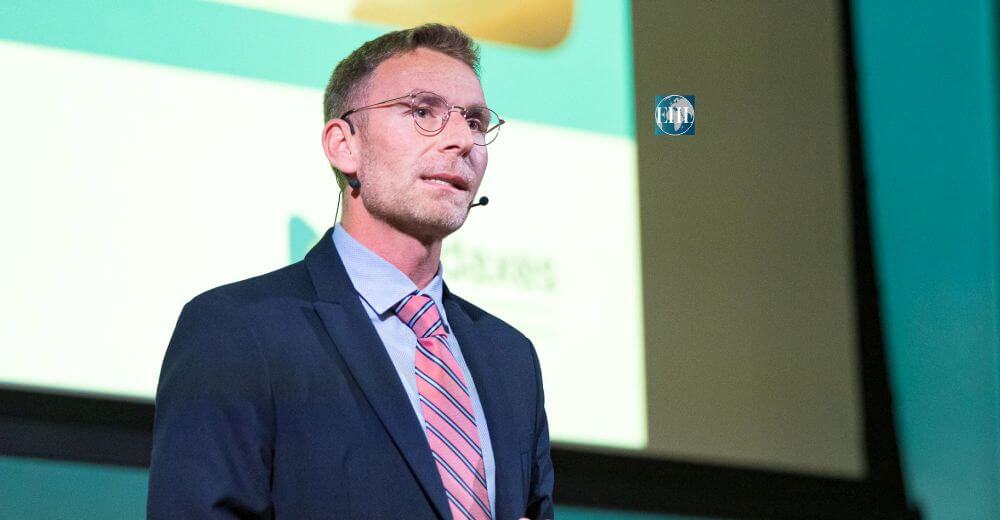Mental health is undergoing a transformative era, and Dr. Mario Scheib is at the lead of this transformation. As the Specialist for Psychosomatic Medicine and Psychotherapy of Instituto Dr. Scheib Mallorca, Dr. Scheib’s institute offers unique and intensive treatments for mental health issues using psychedelic-assisted therapy. He combines the benefits of psychedelics, like ketamine, with advanced methods like brain stimulation and biofeedback. Dr. Scheib’s goal is to speed up recovery and make these treatments a regular part of healthcare, providing new hope for those with tough-to-treat conditions. Under his guidance, Instituto Dr. Scheib is growing globally and setting new benchmarks in mental health care.
Learn more about Dr. Mario Scheib’s journey and how the institute’s innovative treatments are changing the domain of psychiatric care in our detailed interview below!
Can you share your personal journey and what motivated you to establish Instituto Dr. Scheib Mallorca, specializing in psychedelic-assisted psychotherapy?
I first specialized in emergency physician and then became a specialist in psychosomatic medicine and psychotherapy. I have completed training in psychodynamics and psychoanalysis, but have also specialized in hypnotherapy, addiction medicine, biofeedback and neurofeedback.
In 2016, I happened to hear about positive study results for the treatment of depression using ketamine. Unlike most psychiatrists, who are afraid of using anesthetics, I knew ketamine to be a safe and effective medication from my time as an emergency physician. By chance, I had just had an initial consultation with a severely depressed and suicidal patient and decided to try it out straight away. The success was extraordinary: after just one IV infusion, the suicidal thoughts had disappeared, and the depressive mood subsided. The patient was able to reorient herself professionally and socially and showed lasting stabilization after this one intervention. This is certainly not the norm, but it motivated me to continue working in this direction.
What is the core philosophy and approach that guides the work at your institute?
Our philosophy is to help patients as quickly and as well as possible. Many people chronify while they are waiting for therapy and are treated with drugs that only help slightly better than placebo, but cause considerable, sometimes permanent side effects. And quite a few commit suicide while waiting. We therefore guarantee short-term admission in emergencies and the shortest possible treatment times, which should have as little impact as possible on social relationships. The majority of patients are able to complete therapy after two to a maximum of three weeks and only stay in contact with the therapists online if necessary.
How does psychedelic-assisted psychotherapy differ from traditional psychotherapy methods, and what are its potential benefits for patients?
We see the use of psychedelics as a kind of turbo for psychotherapy. As the insights are faster and deeper than with traditional psychotherapy, we need significantly fewer hours of therapy. Long-established patterns of behavior can finally be changed. The majority of patients go into remission after 20 to a maximum of 30 hours. This corresponds to a treatment period of two to three weeks. This saves a lot of suffering, many costs due to inability to work and a better quality of life. I was increasingly skeptical about the traditional approach of one psychotherapy session per week. In my training courses for doctors at my institute in Mallorca, I was able to see how completely unmotivated colleagues could be motivated within a short space of time through an intensive, interactive training program. At that time, around the turn of the millennium, Klaus Grawe in Zurich was conducting intensive research into effective factors in psychotherapy and realized that we were probably doing the right thing, but not initially with the necessary intensity. And this is in line with the findings of psychology of learning that intensive input is needed, especially to bring about change at the beginning.
Can you provide an overview of the specific psychedelic substances used in your treatments and the protocols followed to ensure safety and efficacy?
For legal reasons, we currently only use ketamine. We prefer racemic ketamine, which we generally use as an IV infusion. The therapist always sits next to the patient and provides reassurance. The good controllability of the infusion means that unpleasant side effects occur in less than 4% of cases. As soon as other substances are authorized, we are of course prepared to integrate them into our therapy concept. The pharmacological and legal safety of the substances and their applications is always important to us.
What are some of the most significant breakthroughs or advancements your institute has achieved in the field of psychedelic-assisted psychotherapy, particularly for treating psychotic disorders?
We have achieved the greatest breakthroughs in the areas of treatment-resistant depression, post-traumatic stress disorder and addiction. We also treat bipolar disorders and psychotic depression. For hallucinatory psychoses, we do not use psychedelics but transcranial magnetic stimulation, which can reduce both auditory and visual hallucinations.
How do you address the ethical and legal considerations surrounding the use of psychedelics in a therapeutic setting?
We carry out off-label treatment with the use of ketamine. All other therapeutic procedures are authorized in regular treatment guidelines. Off-label treatments are common in medicine: around 90% in pediatrics and 50% in oncology. Our patients are informed about this. From an ethical point of view, I personally find it problematic that therapy recommendations for the use of ketamine for depression presuppose unsuccessful treatment with at least two authorized antidepressants over a sufficiently long period of time and at a sufficiently high dose. This means accepting an unnecessary amount of suffering (weight gain and sometimes permanent sexual dysfunction) with an efficacy rate just above placebo. When used properly, ketamine causes almost or no lasting side effects and has a high sustainability in combination with psychotherapy and rTMS.
What are your plans for expanding access to psychedelic-assisted psychotherapy and integrating it into mainstream healthcare systems?
We are currently expanding into various countries where we would like to implement the concept of a multimodal, intensive short-term therapy involving ketamine, and later other psychedelic substances, with regional partners. We are conducting scientific studies on efficiency and sustainability and hope to increasingly convince private health insurers and then also public healthcare systems of the benefits, which has already been successful with some private insurers.
What advice would you give to aspiring professionals or entrepreneurs interested in exploring the potential of psychedelic-assisted psychotherapy as a treatment modality?
Our present system of psychiatric treatment is outdated and inadequate. We work with therapy concepts that are not sustainable according to modern research findings and that cost healthcare systems a great deal of money. Current psychiatry, which works with medication that sometimes works only slightly better than a placebo and offers psychotherapeutic settings that can hardly produce any positive results simply because of their lack of intensity, has forfeited its claim to be recognized as a serious scientific discipline, and not only in my view. But there is a great deal of interest on the part of the pharmaceutical industry in retaining this method. New concepts require a rethink in many areas, but they could be worthwhile in the medium and long term.
Read More: Click Here









